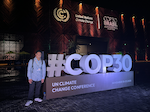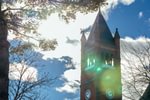
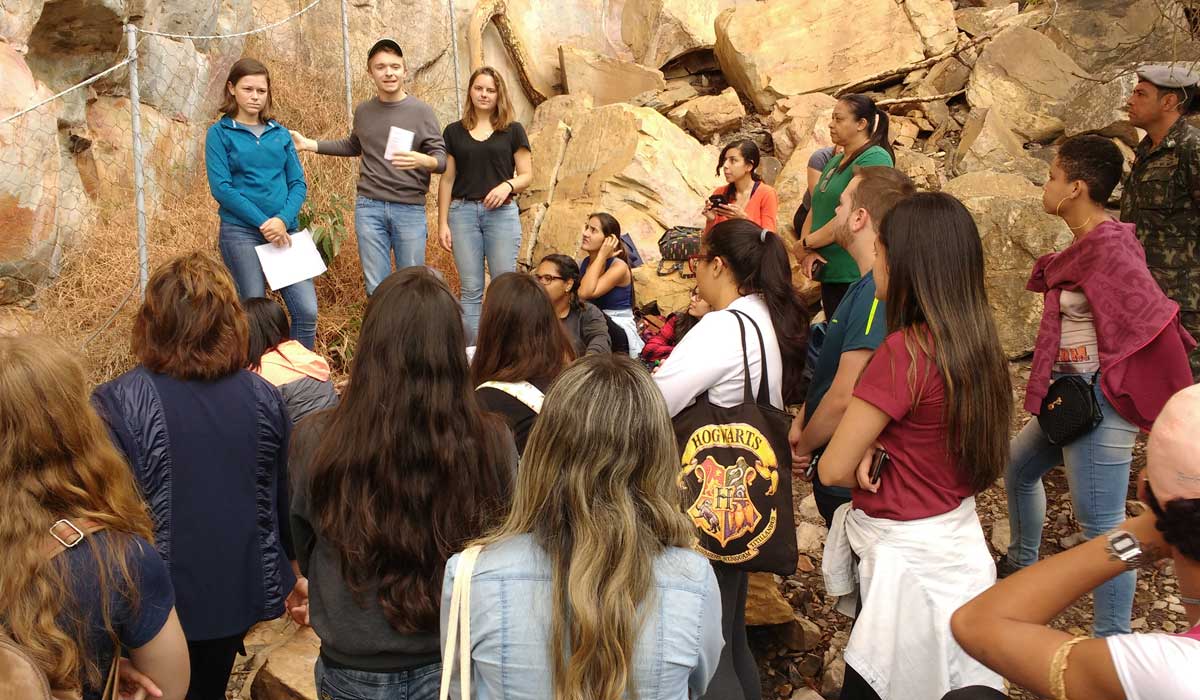
In 2018, recent Gettysburg graduate Anthony Wagner ’17 flew across the globe to teach English on a Fulbright grant in a country with very little understanding of the native language or culture. But his initial hesitation grew into a strong fondness for the people and their ways of life, igniting in him a calling to advocate for global citizenship and cross-cultural communication.
“As the son of a farm family in Western Pennsylvania and a first-generation college graduate, opportunities to meet with students from similar backgrounds provided a chance to show these students that it is possible to attend university and to live and learn in another country if that is what you want to do, despite socioeconomic hurdles that exist,” Wagner said of his ability to relate to and inspire students while teaching in Brazil.
Despite the language barrier, Wagner, a Bedford, Pa., native, found little reason to pass up the opportunity to travel to Brazil and explore the field of social science. He trekked to Brazil in February 2018 and has lived there ever since, drawing on his own passion for engaged citizenship to learn from his students.
“Far too often, problems stemming from poverty and inequality are exacerbated by proposed solutions. Agency and empowerment must be given to local communities so that they can craft their own solutions and way forward,” he said. “Social scientists, with their tools and perspectives, must challenge these misunderstandings and play an active role in alleviating socioeconomic crises.”
As a Fulbright grantee—part of one of the leading educational Cultural Exchange Programs in the United States—Wagner first served as an English teaching assistant (ETA) in the department of languages at the Universidade Federal de São João del Rei (UFSJ) in Minas Gerais. Then, during his second grant year, he was promoted to regional leader for host institutions in Minas Gerias and São Paulo.
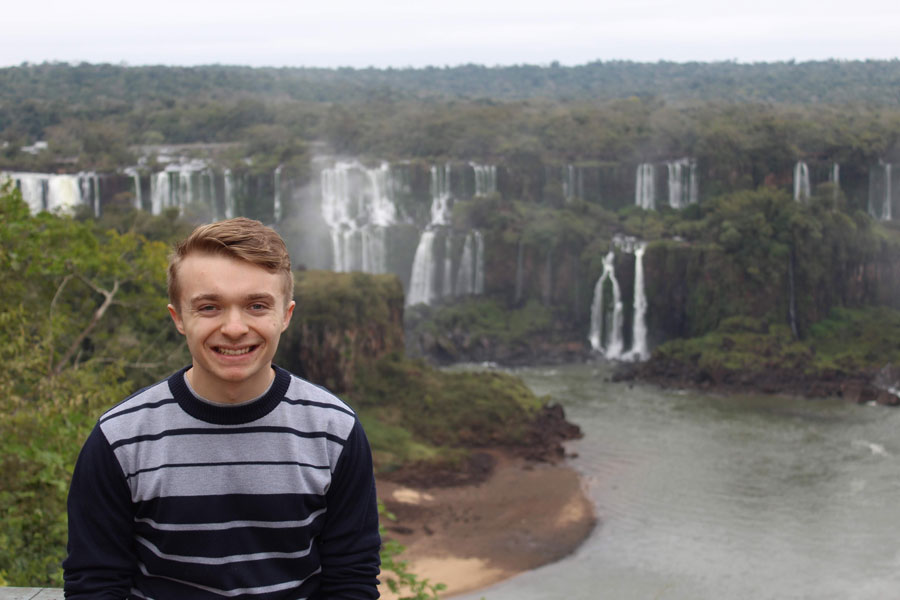
Since arriving, Wagner, a political science and anthropology double major who spent the fall semester of his junior year studying in South Africa, has discovered ways to link his liberal arts and sciences education with opportunities to forge cross-cultural understanding through workshops, projects, and teaching opportunities. The Fulbright program serves to mutually teach both grant recipients and host communities, which allows Wagner the chance to see his cross-disciplinary education in action as he learns about the country and ways to alleviate societal issues across cultures.
“I found that I really enjoyed planning and facilitating classes and conversations about cross-disciplinary themes,” Wagner reflected. “I prefer to say that I was co-learning with our students. When one is standing in front of a classroom, one assumes an awesome responsibility that should not be taken lightly. I think it’s better to share that responsibility with students whenever possible.”
One such way Wagner shared cross-cultural learning experiences with students was through the project “Rock Paintings in Translation,” in which he, along with two co-ETAs, a professor at UFSJ, and university students, organized two visits to 6,000-year-old Neolithic rock paintings for more than 50 middle school students in under-resourced public schools in São João del Rei. In this experiential activity, the students were asked to point out what the paintings symbolized to them and connect the messages back to their current lives.
“The rock paintings project was a vehicle to experiment with how we can use the resources available in our own backyard—no matter where we live—to teach students about why it is important to engage with and care for their communities and neighbors,” said Wagner, whose inspiration for the project stemmed from a summer working on an archaeological excavation in North Macedonia with Classics Prof. Emerita Carolyn Snively.
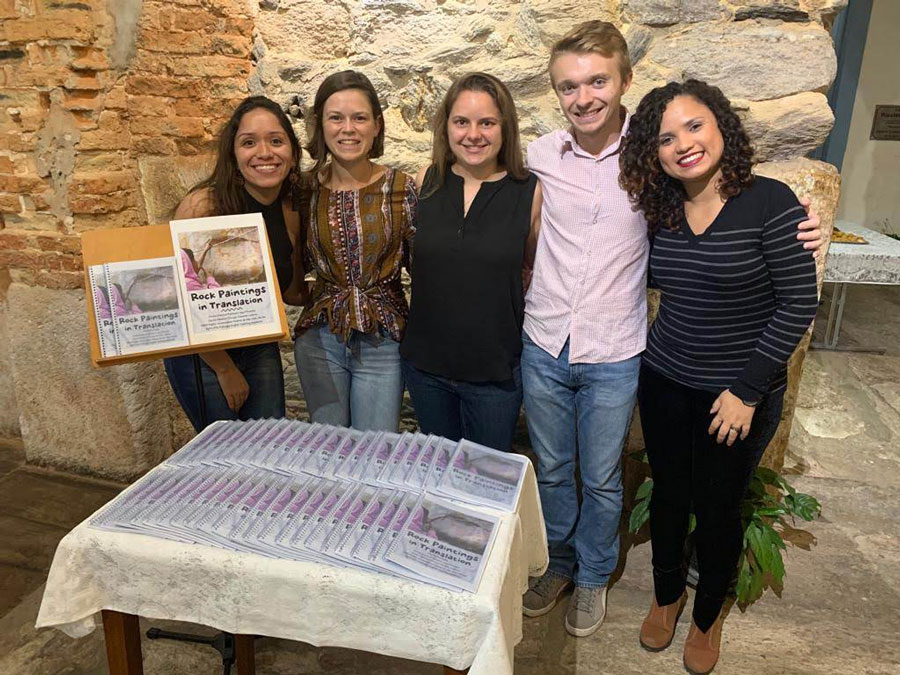
This successful project received funding and support from the Regional English Language Office at the U.S. Embassy in Brasilia, as well as local groups including the Brazilian Army, UFSJ, and a local bus company. Wagner and his colleagues published and released a booklet at the historic center in São João del Rei with the students’ reflections documented in both Portuguese and English, as translated by the university’s English students.
“I learned that these sorts of projects, even one as small as ours, require a network of partners who care about the project just as much as you do,” Wagner said. “This conclusion really supports the point of the whole project and aligns well with the proverb: ‘If you want to go fast, go alone. If you want to go far, go together.’”
Ultimately, the rock paintings project served a greater message of the importance of cross-cultural communication. Wagner watched as students attempted to understand the meaning behind the paintings and the painters’ ways of life, which allowed them the opportunity to relate to and empathize with other cultures.
“The ability to observe, understand, and communicate with people who are different from us is a skill requisite to solving our world’s most troubling problems,” Wagner said.
Wagner, who will soon pursue a Master of Science in Education at the University of Pennsylvania Graduate School of Education, often ponders what world citizens can do to alleviate problems and advocate for others. According to him, the answer lies in our exposure to realities outside our own in order to discover the best ways to support and uplift those around us.
“Global citizenship, like any form of citizenship, requires each of us to be informed, listen to each other, and hold our leaders and communities accountable via a host of methods—the most important of which, I believe, is empathy,” said Wagner.
Engage in global citizenship through Gettysburg’s study abroad program.
By Phoebe Doscher ’22
Photo courtesy of Anthony Wagner ’17
Posted: 09/01/20

